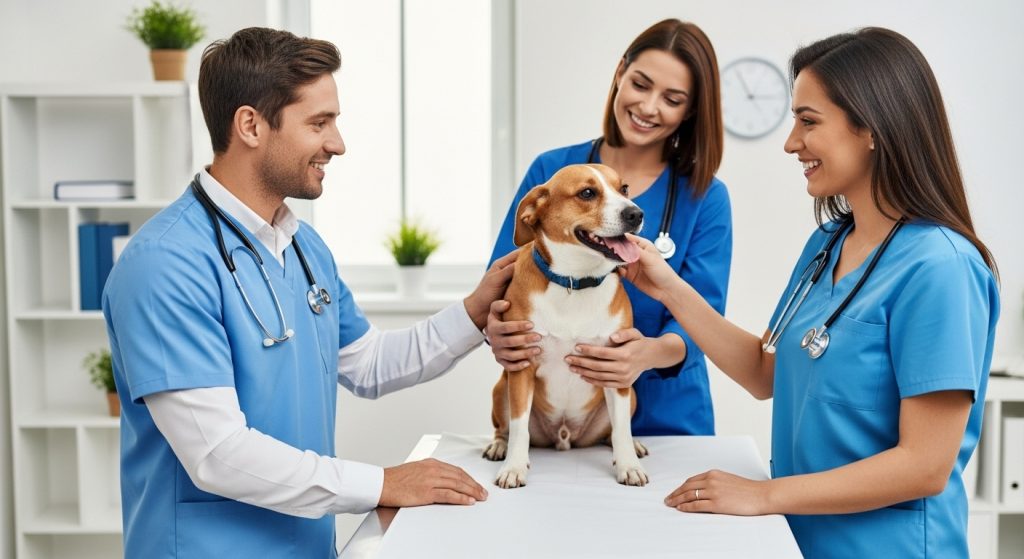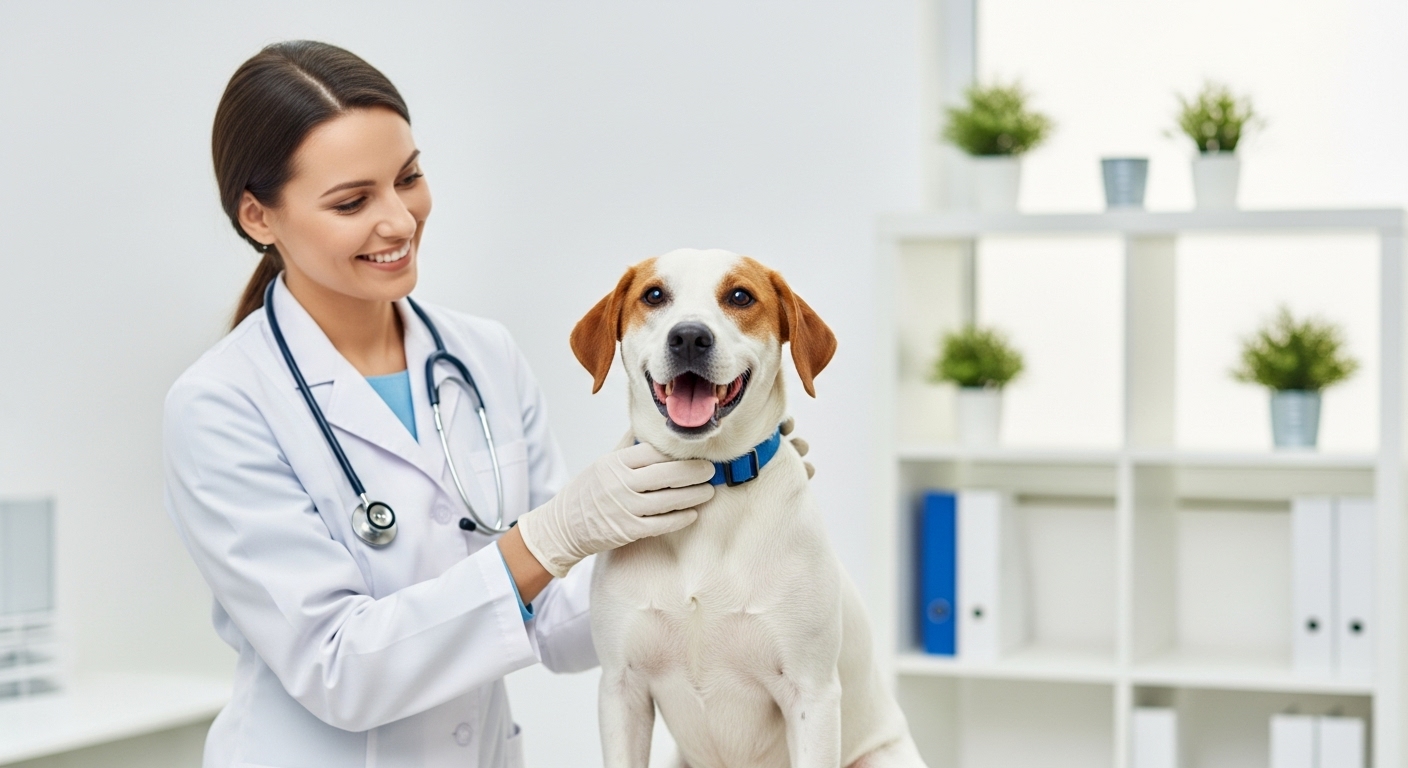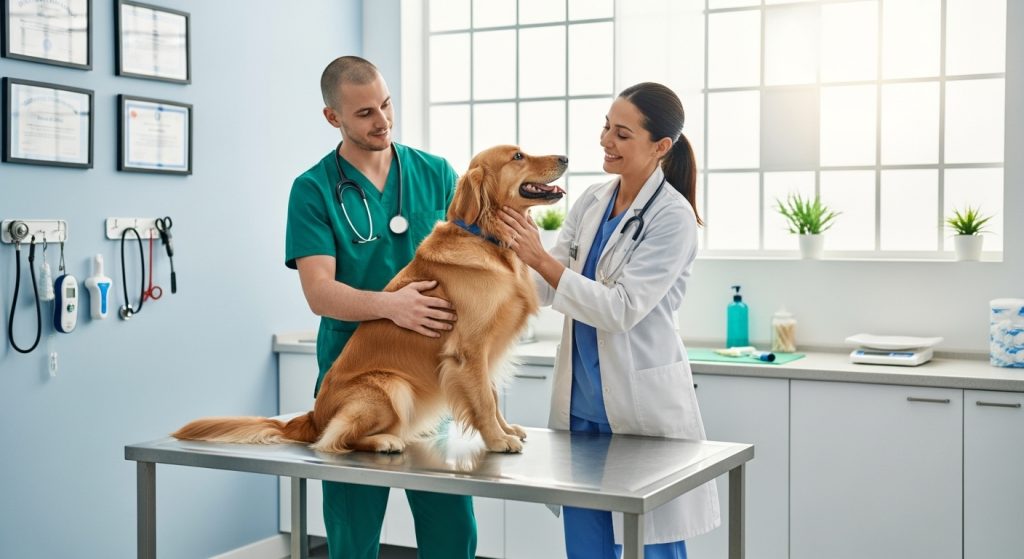When it comes to keeping your furry friend healthy, many owners focus on diet, exercise, and affection — but often overlook one critical component: routine vet visits. Regular veterinary checkups are not just about vaccinations; they are about early detection, disease prevention, and long-term health management.
Your dog can’t tell you when something feels wrong. Subtle signs of illness often go unnoticed until the condition becomes serious. Routine vet visits help ensure your pet stays healthy, happy, and by your side for many years to come.
Let’s explore why consistent vet care is essential and how you can make the most of each visit.
Early Detection Saves Lives
1.1 The Power of Prevention
The most effective way to protect your dog’s health is to catch problems before they start. During regular checkups, veterinarians perform comprehensive physical exams that cover everything from your dog’s teeth to their tail.
Routine testing can detect hidden conditions such as:
-
Heart disease
-
Diabetes
-
Kidney or liver problems
-
Parasite infections
-
Thyroid disorders
When caught early, these issues are often treatable or manageable, greatly improving your dog’s quality of life.
1.2 Vaccinations and Parasite Control
Vaccines protect dogs from dangerous diseases like rabies, parvovirus, and distemper. Similarly, parasite control prevents infections from fleas, ticks, and heartworms — all of which can cause severe health complications if left untreated.
Vets typically create a personalized vaccination schedule based on your dog’s age, breed, lifestyle, and environment. Consistent visits ensure your pet remains up-to-date and well-protected all year round.
1.3 Annual Health Screenings
Even if your dog appears healthy, annual screenings like blood work, urinalysis, and fecal exams can reveal early signs of internal problems. Regular testing allows your vet to spot minor changes before they become major threats.
Tip: Early diagnosis leads to less invasive treatment, lower costs, and a happier, longer life for your pet.
Building a Preventive Health Routine
2.1 The Importance of Regular Checkups
Routine vet visits create a baseline health record for your dog. By comparing results over time, your vet can notice even the smallest changes in weight, heart rate, or bloodwork.
These regular visits typically include:
-
Dental health evaluations
-
Weight and nutrition assessments
-
Skin and coat checks
-
Heart and lung monitoring
This ongoing care builds a complete picture of your dog’s health, helping your vet make smarter recommendations about diet, supplements, or exercise adjustments.
2.2 Tailoring Care for Every Life Stage
Your dog’s needs change as they grow. Puppies require frequent visits for vaccinations and deworming, while adult dogs benefit from annual wellness exams. Senior dogs may need semi-annual visits to monitor for age-related conditions like arthritis or organ decline.
Routine vet visits ensure your pet receives age-appropriate care — a key to maintaining vitality and comfort at every stage of life.
2.3 Dental and Nutritional Health
Dental disease is one of the most common — and preventable — issues in dogs. Regular vet exams include dental checkups to identify tartar buildup, gum disease, or tooth decay before they cause pain or infection.
Likewise, veterinarians assess diet and nutrition. They can recommend high-quality food, portion control, and supplements to support your dog’s unique needs, helping prevent obesity and related health issues.
Strengthening the Human–Animal Bond
3.1 Reducing Anxiety and Building Trust
Regular vet visits help your dog become comfortable with veterinary environments. When visits are infrequent or only occur during illness, dogs often associate the vet with fear or pain.
Consistent checkups create positive reinforcement, allowing your dog to stay calm and confident during exams. This reduces stress for both you and your pet.
3.2 Educating Pet Owners
Veterinarians are your partners in pet care. They provide expert advice on:
-
Behavior and training
-
Nutrition and exercise
-
Preventing common household hazards
-
Seasonal care (heat, cold, allergies)
Routine vet visits allow you to ask questions and learn how to provide the best care possible — turning you into a more informed and confident pet parent.
3.3 Emotional and Physical Well-Being
A dog that feels healthy behaves better, plays more, and forms deeper emotional connections with its owner. Regular checkups not only extend your dog’s life but improve the quality of every moment you share together.

Routine vet visits are more than a health formality — they’re a lifeline for your dog’s longevity and happiness.
Through early detection, preventive care, and trust-building, you give your furry friend the best chance to live a long, vibrant life.
So don’t wait for illness to strike. Schedule that checkup today and invest in your dog’s future — one vet visit at a time.


